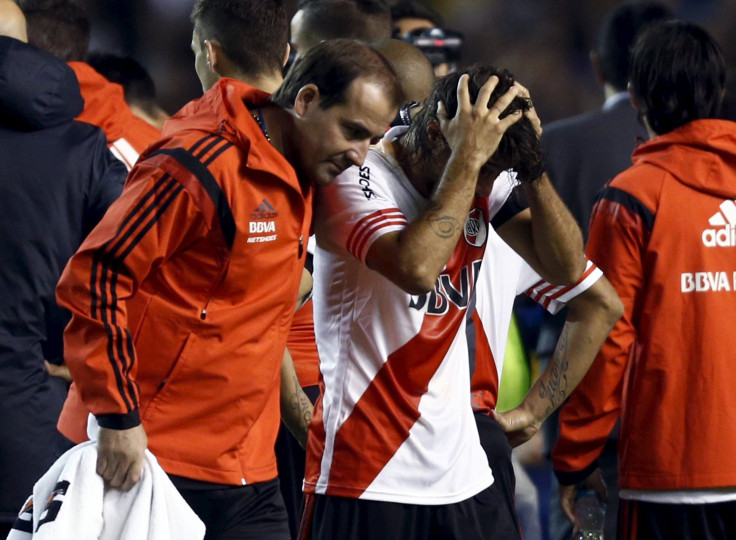VIDEO River Plate Players Pepper Sprayed In Boca Juniors Copa Libertadores Match

One of the fiercest rivalries in world soccer descended into chaos on Thursday when River Plate players appeared to be pepper sprayed by fans of Boca Juniors as they came out for the second half of their clash at Boca’s La Bombonera stadium.
With the second leg of the Buenos Aires rivals’ Copa Libertadores Round-of-16 series tied scoreless after 45 minutes, a number of River players emerged from the tunnel for the second half unable to see and with orange coloring down their shirts. Pictures appeared to show that one or more of the Boca supporters had managed to cut through the inflatable tunnel to be able to spray a chemical substance at the players from the stands. Away fans are banned from attending matches in Argentina due to a history of fan unrest.
Following the incident, River Plate players were left in obvious distress for several minutes as they tried to flush the spray from their eyes. After a long period of inactivity as the players waited in limbo for a decision to be made, the visiting team then made their way back to the sidelines where they removed their shirts and revealed bodies bearing burn marks from the chemicals.
Only more than an hour later was the match officially called off, and even then River Plate’s players remained on the pitch as officials worked out how to get them safely back into the dressing rooms. It wasn’t immediately clear whether the match would be replayed or if Boca Juniors were to be thrown out of the competition.
This was the third meeting between the two historic rivals in 10 days. After Boca triumphed in the Argentine league meeting at their La Bombonera Stadium, River Plate won the first leg of their Copa Libertadores -- South America's equivalent of the Champions League -- knockout round tie 1-0 last week at Monumental stadium. The rivalry known as "the Superclásico" was born when both clubs were founded in the La Boca neighborhood of Buenos Aires, before River Plate subsequently relocated to a more affluent barrio in Argentina’s capital.
© Copyright IBTimes 2024. All rights reserved.











